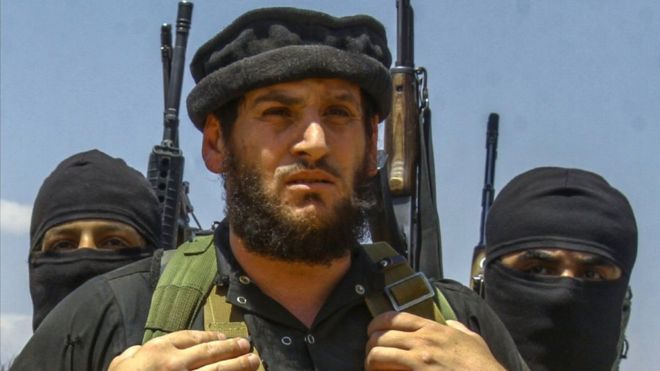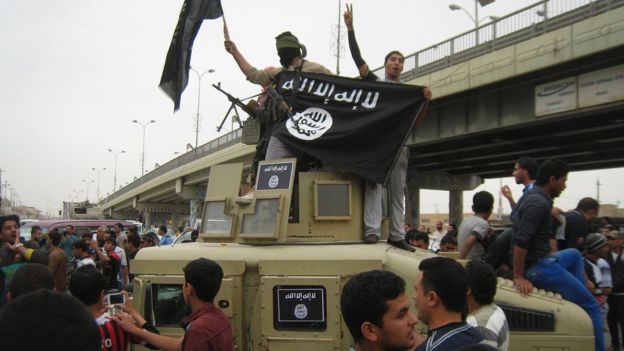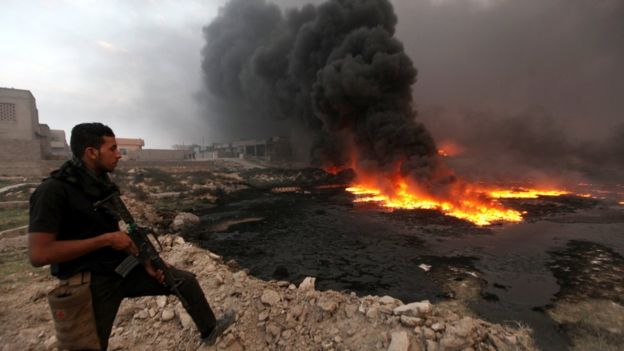
On Tuesday, the Islamic State group announced the killing of Abu Muhammad al-Adnani, its spokesman since 2010.
Amaq, one of the group's media outlets, said he was targeted as he was inspecting the preparedness of fighters in Aleppo.
The US said Adnani was targeted by a precision strike in al-Bab, the second most important stronghold for IS in Syria after Raqqa. Russia also claimed responsibility for the killing of one of the most significant jihadist operatives over the past half-decade.
Taha Subhi Fallaha, Adnani's real name, was born in the town of Binnish, in the countryside of the north-western Syrian province of Idlib.

The US said Adnani was targeted by a precision strike in al-Bab, the second most important stronghold for IS in Syria after Raqqa. Russia also claimed responsibility for the killing of one of the most significant jihadist operatives over the past half-decade.
Taha Subhi Fallaha, Adnani's real name, was born in the town of Binnish, in the countryside of the north-western Syrian province of Idlib.

Adnani helped oversee the seizure by IS of much of northern and western Iraq in 2014
He was one of a handful of IS leaders left of the generation who founded the group after the US-led invasion of Iraq in 2003, rebuilt it after American troops withdrew in 2010, and oversaw it taking control of an area similar in size to the United Kingdom in 2014.
Before Adnani's death, IS had lost at least 50% of its territory in Iraq and 20% in Syria, but still controlled something the size of Greece.

Before Adnani's death, IS had lost at least 50% of its territory in Iraq and 20% in Syria
The decapitation of the old guard could thus inject new life into IS, with emerging commanders more dogmatic, resilient and attuned to local dynamics than previous ones.
Almost exactly two years after the launch of the US-led operation to degrade and ultimately destroy IS, the group still controls 50% of the territory it once held in Iraq and Syria, including critical strongholds such as Mosul and Raqqa.
The remaining half could crumble faster than the first half, but it could also endure longer.
The ability of IS's emerging leaders to maintain the organisation will depend on how they manage the fight for the remaining half.
Regardless of what happens next, this is a long war, and no-one should hold their breath.

No comments:
Post a Comment